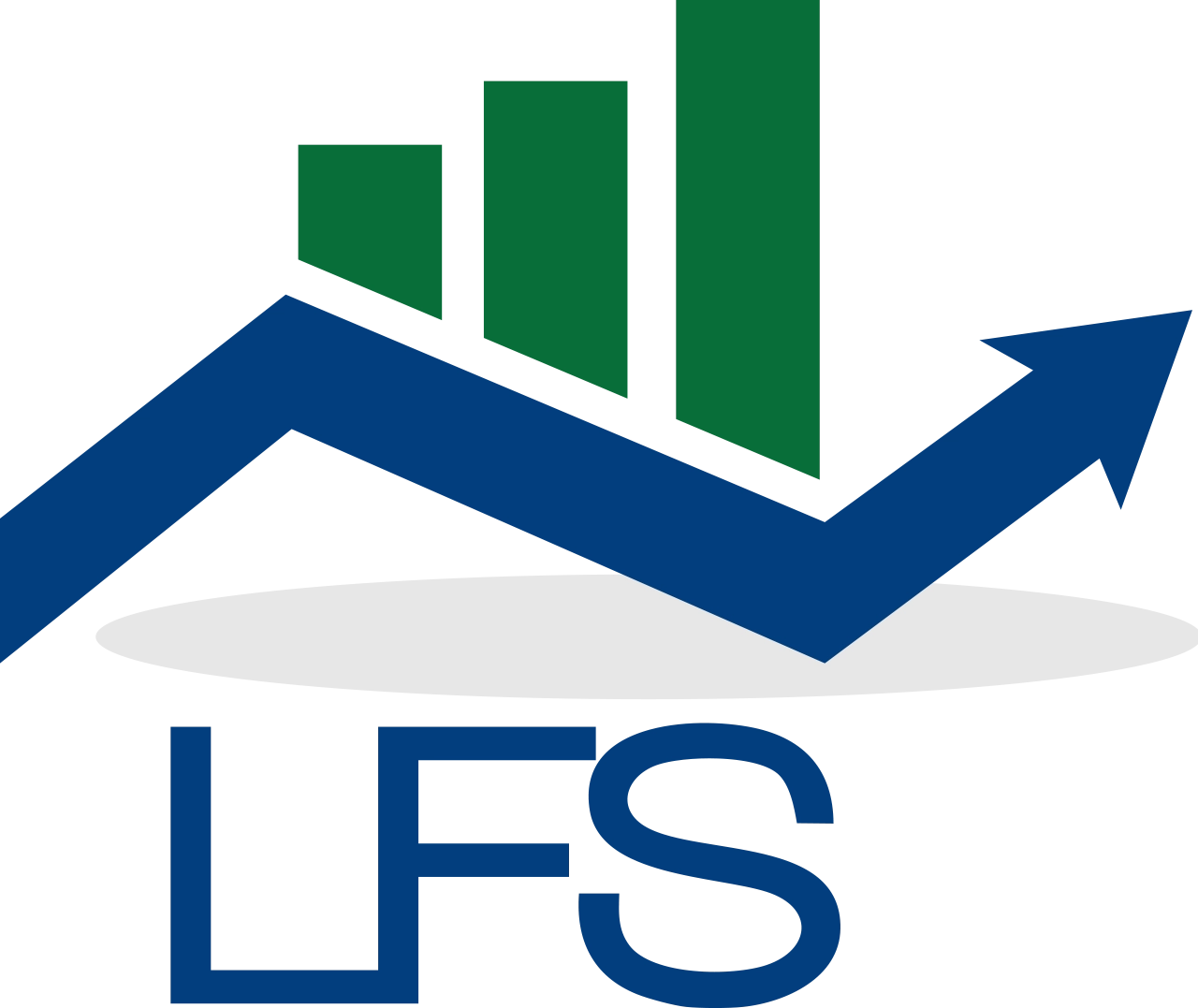Bernie’s Blog
Are you asking yourself…
- When should I start taking social security?
- Do I need a trust? Do my parents need a trust? What about my kids?
- Can I pay less income tax?
- Should I do a Roth conversion now to reduce my RMDs when I have to start taking them?
- How do I start spending the money I have worked decades to accumulate without worrying all the time that I will run out of money?
- If I have different types of accounts, in what order should I withdraw money when I need it?
- Can I afford to retire?
- How much should I really be saving every month?
- If I don’t have children, what do I need to do to ensure my financial and healthcare wishes are met? If I do have children, what do I need to do to ensure my financial and healthcare wishes are met?
Watch your mail in the next few weeks for an exciting announcement from LFS!
Can’t wait for our letter?? Feel free to call us now!
Retirement Account Changes for 2025
Happy 2025!
For 2025, there are plenty of changes which impact IRA’s and 401K’s so we will just cover the major ones here. There could be additional changes later in the year of course.
For 401K/403B/457:
- The maximum employee contribution has been increased from $23,000 to $23,500. The catch-up contribution for employees age 50 and over remains at $7,500 for a total of $31,000. New for 2025 is a total catch up limit of $11,250 for active participants who are between 60 and 63 years of age. This brings the total employer plan contribution to $34,750 for these employees.
For Traditional IRA’s:
- Contribution limit stays at $7,000 for 2025. The catch-up contribution for those age 50 and over is still $1,000 for a total of $8,000. The income tax deductibility level has been increased. We will review with you individually as needed.
For ROTH IRA’s:
- Contribution limit stays at lower of earned income or $7,000 for each spouse. Catch-up contribution of additional $1,000 for age 50 and over.
- Contribution eligibility has increased:
- Full contribution with Adjusted Gross Income (AGI) increased to $150,000 for a single taxpayer. Phase-out between $150,000 and $165,000. We can help with the phase-out math.
- Full contribution for each with total Adjusted Gross Income (AGI) less than $236,000 for married/filing jointly taxpayers. Phase-out between $236,000 and $246,000. We can help with the phase-out math.
- 2024 contributions (of $7,000 or $8,000 if age 50 or over) can be made until April 15, 2025. Let us know if you plan to do this so we can ensure the deposit gets applied to the correct year.
Call with questions or if we can help get these changes made for you.
Great Holiday Gifts Part 2: Roth IRA’s
As promised earlier in the month, we are now going to re-introduce you to Roth IRA’s, but this time, as great financial gifts for your lucky and hard-working children or grandchildren. As I said earlier, there are very few investments which grow tax free, but 529 plans and Roth IRA’s do just that!
Many of you are familiar with Roth IRA’s, but for those of you that are not, here is a brief overview:
Roth IRA’s were created by the Taxpayer Relief Act of 1997 to help Americans save for retirement. These IRA’s have become enormously popular in the last 20 years but there are some important considerations:
- The dollar contribution limits are the same for Roth IRA’s and traditional IRA’s. Eligibility for a Roth IRA requires “earned income,” subject to an income cap which is not present for traditional IRA’s.
- Contributions are made with after-tax dollars, unlike those in traditional IRA’s or most company sponsored retirement plans.
- Because the contributions are made with after-tax dollars, the contributions can be withdrawn at any time, without tax or penalty. This might be important for young investors like your children or grandchildren who might need the money they invested before retirement.
- Unlike traditional retirement plans, the earnings can also be withdrawn tax-free, subject to owner age and account duration rules, and there is no requirement for distributions to begin at any age.
As I said above, there is a requirement for the Roth IRA account holder to have “earned income” in order to be able to contribute BUT the actual contribution can be funded by anyone (YOU in this case) as long as the dollar amount of the contribution does not exceed the owner’s earned income or annual maximum allowed.
Head spinning? How about an example? You have a 19 year old grandson who worked over the summer stocking shelves in the middle of the night for Kroger. He earned $2000 and will receive a W-2 from Kroger. I am guessing he probably can’t invest this $2000 in a Roth IRA because he is saving every penny for college, BUT you can fund it for him. You have until April 2025 to make this 2024 Roth contribution. We will help you understand eligibility requirements and then help you actually pull this off.
Want to read more about Roth IRA’s? See attached link. https://www.investopedia.com/terms/r/rothira.asp
Great Holiday Gifts Part 1: 529 Educational Savings Plans
Back by popular demand, the next two Bernie’s BLOG posts will provide info on some great financial holiday gifts for you, your children, or grandchildren. This blog will cover 529 educational plans and the next one will re-introduce many of you to Roth IRA’s. By the way, we are not suggesting that you forego fun gifts for your offspring, but we really like the idea of longer term not nearly as “fun” gifts to help secure the financial futures of your lucky family members.
As many of you know, there are very few investments which grow tax-free, but 529 plans and Roth IRA’s do just that, at least for now.
529 plans are state run educational savings plans which can be used for very broadly defined educational expenses for adults or children. These funds can be used for pre-college, trade school or college tuition/fees. The investments in a 529 plan can be made by anyone, subject to gift tax requirements, and are made with after-tax dollars although some states offer a state tax credit to parents who contribute in their state of residence (North Carolina does not offer this credit at this time). The funds in a 529 plan can be moved to another child and the funds do not have to be used in the state in which the plan was funded. Unlike other investments, 529 plans are controlled by the account “owner”, not by the child. Taxes and penalties are due if money is not used for educational expenses, but again, the definition of educational expenses is quite broad and usually includes computers, books, and room and board. There has also been an important change to 529 plans – up to $35,000 of unused funds can now be rolled over to a Roth IRA for the child, subject to lots of rules of course.
These plans carry low management fees because they tend to be “target date” funds where the investment mix is automatically rebalanced as the child gets closer to college age.
Although 529 plans are not LFS managed assets, we would be happy to assist you in starting one for your children or grandchildren, or even yourself! There is no minimum dollar requirement to open an account and dollars can be added throughout the year.
If you want to read up, see link below, or feel free to call us to talk more.
It’s Wedding Season at LFS: Part 2
Congratulations to Jordan and Matt, Lori and Charles, and Grandmother Toby! Photos from last weekend’s beautiful event in Orange, Virginia are attached.
We are so happy to welcome Matt to our family!



What is the VIX?
For those of you who unfortunately checked up on your portfolio on Monday August 5 when the S&P 500 dropped 160 points, you may still be asking yourself (and us) what actually happened that day.
Of course, no one really knows the actual answer, but it was likely a “perfect storm” of financial and non-financial events. The good news is that the market drop was short-lived (at least for this market cycle) and the S&P 500 quickly returned to its record-breaking highs (again for this market cycle)
If you dug a little deeper that day, you may have read about a massive spike in the VIX so we decided to dig a little deeper into what the VIX is and what it MIGHT mean, so we all know when it happens again.
First of all, the VIX is the ticker for the CBOE (Chicago Board Options Exchange) Volatility Index. The VIX, which is also called the Fear Index, is a real-time measure of investors’ expectations for short- term price changes in the S&P 500. It is calculated from prices of short-term S&P Index options. The index is calculated for the following 30 days and then annualized for the following 12 months. Simply, the VIX measures how fast stock prices are expected to change. In general, when the VIX goes up, stocks prices fall (investor fear is higher) and when the VIX goes down, stock prices increase (investor fear is lower).
Experts suggest the following rules of thumb:
- When the VIX is between 0 and 12, investors should expect low volatility for the following 30 days
- When the VIX is between 13 and 19, investors should expect normal volatility for the following 30 days
- When the VIX is 20+, investors should expect higher than normal volatility for the following 30 days
The long-term average VIX reading is 21. The highest ever VIX to date was almost 83, which happened in March 2020. The second highest reading was 81 which occurred during the 2008 financial crisis. On the
other hand, the lowest VIX recorded was 9 in November of 2017? Remember that? No one does.
So what happened to the VIX in early August?
The VIX spiked above 60, with the highest ever intra-day jump, and ended very close to the “market panic” level. Within just a few days, the VIX returned to a more normal level. Experts believe there were likely several factors for the spike:
- Concerns about the U.S. economy following July inflation and unemployment numbers
- Any excuse to sell, given the rapid rise in technology mega cap stocks tied to big bets in AI
- The steep decline in the Yen carry trade (investors borrowing Yen at very low interest rates and the purchasing U.S. or other assets with potentially much higher returns)
- Nuances in calculations
- World events – continuing escalation of mid-east wars, upcoming U.S. elections, China economic woes, etc.
The VIX today is 15.8. September has historically been the most volatile month of the year and the VIX has risen slightly for the last 30 days. Most of us expect ongoing market volatility for at least the next 40 days as the U.S. election nears so the VIX is a good way to see if other investors agree.

